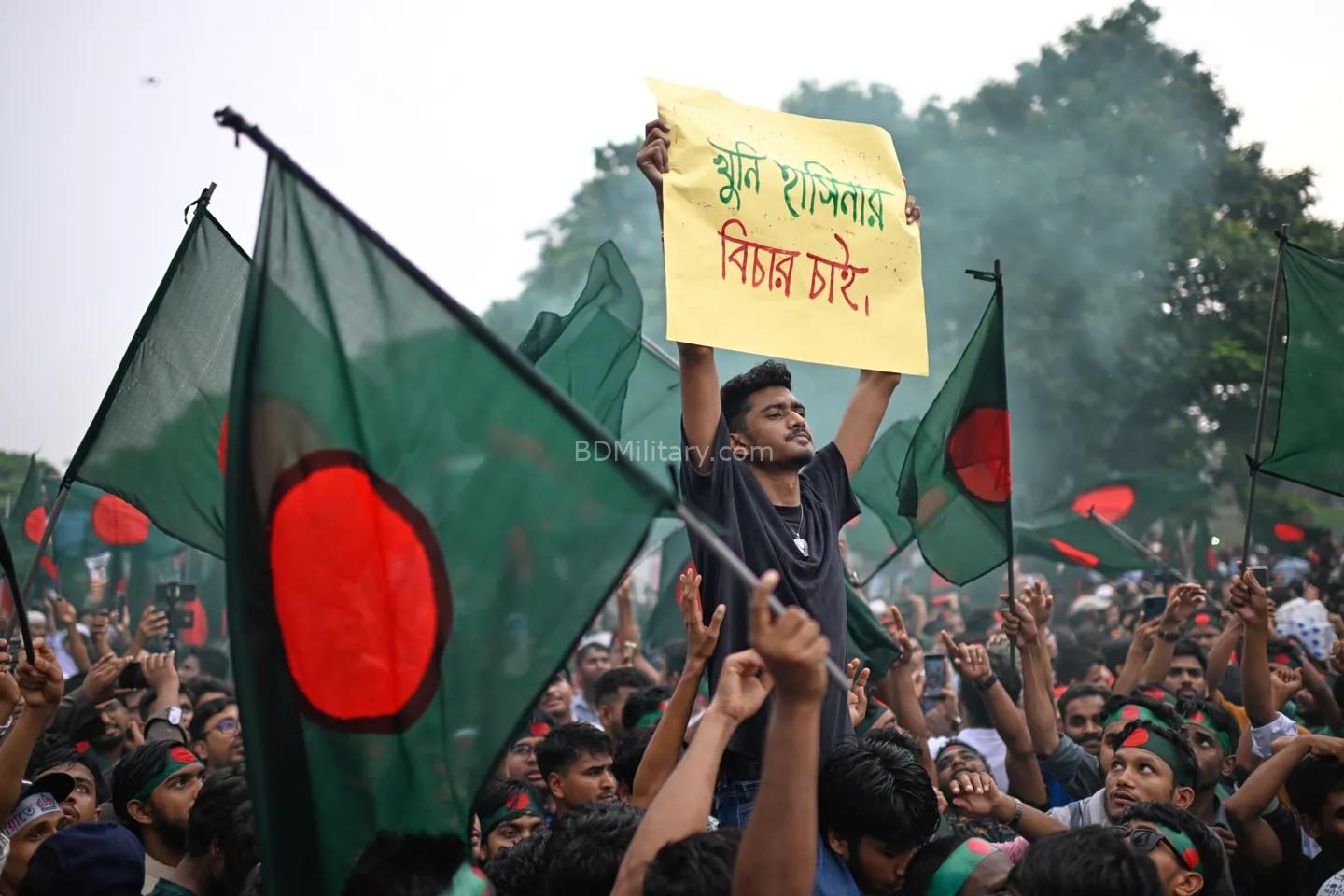As Bangladesh approaches its scheduled general elections in early 2025, the country’s internal security environment appears to be entering a period of heightened volatility. Intelligence assessments circulating among security analysts suggest the possibility of orchestrated attempts by remnants of the previous ruling network to destabilise the state through asymmetric and psychological operations. The situation reflects a deepening contest between national, regional, and transnational intelligence interests seeking to influence the country’s political trajectory.
Subversion and Internal Threat Perceptions
Unconfirmed reports and online statements attributed to individuals linked with the former ruling party (Awami League) indicate that directives may have been issued for coordinated acts of sabotage and disruption. The objective, according to these interpretations, would be to erode public confidence in the interim administration and force a military-led intervention under the pretext of restoring stability.
Such a strategy would represent a classic low-intensity destabilisation campaign — one leveraging sleeper cells, administrative insiders, and influence networks embedded during the previous regime. These operations would aim to create an illusion of national paralysis, pushing security institutions toward extraordinary measures such as emergency rule or martial law.
However, the socio-political environment of late 2025 is markedly different from the mid-2000s. Public sentiment in Dhaka and other major urban centres is sharply opposed to any return of the former regime or its perceived external patrons. The population’s exhaustion with years of political control, corruption, and suppression makes it unlikely that any covert effort to reinstall discredited actors would find legitimacy.
Intelligence Dynamics and Regional Implications
The current intelligence landscape in Bangladesh is characterised by overlapping lines of influence. Indian intelligence agencies, long accustomed to deep access within Dhaka’s political and bureaucratic ecosystem, are believed to be exerting pressure on key military figures to intervene against the interim government. Such an outcome would effectively reintroduce a dependency relationship between Dhaka and New Delhi, undermining Bangladesh’s sovereignty and independent foreign policy posture.
The recent visit of a senior Indian military intelligence delegation, reportedly led by a Major General, has raised questions about the extent of India’s covert engagement. Observers note that while Delhi views the current political shift in Dhaka as a strategic setback, the United States and China appear aligned — at least tacitly — in opposing any unilateral Indian move that could destabilise the region. Both powers have vested interests in preserving Bangladesh’s stability as a manufacturing hub, a maritime partner in the Bay of Bengal, and a neutral state in South Asia’s balance of power.
Counter-Intelligence and Domestic Security Measures
Bangladeshi intelligence agencies are reportedly monitoring sabotage attempts targeting key-point installations, power infrastructure, and industrial sectors such as the readymade garment (RMG) industry — the backbone of the national economy. The interim administration may soon be compelled to authorise sweeping security operations against infiltrators and sympathisers of subversive networks operating under political cover.
Within the armed forces, there is a growing awareness of attempts to manipulate sections of the officer corps. The authorities may pre-emptively move against conspiratorial elements by enforcing tighter command discipline and transferring any suspect personnel to civilian jurisdiction, especially those implicated in past abuses or ongoing judicial proceedings.
Strategic Outlook
The coming months are likely to test Bangladesh’s resilience against hybrid warfare and political manipulation. If the alleged destabilisation campaign persists, it will force Dhaka to recalibrate its internal security doctrine — balancing counter-intelligence vigilance with political restraint to avoid alienating the broader population.
At the strategic level, the confrontation over Bangladesh’s future direction transcends domestic politics. It represents a contest over sovereignty itself: whether Dhaka will continue its trajectory toward strategic autonomy or revert to external dependency. For now, the momentum favours the nationalist and reformist bloc, bolstered by widespread public support and cautious international backing.
But the shadow contest — fought through information, infiltration, and influence — is far from over. As Bangladesh approaches 2025, its greatest challenge may not be political transition, but defending the integrity of its state from within.

Khaled Ahmed is a seasoned former intelligence analyst and military expert from the Netherlands, bringing over 15 years of specialised experience in operational intelligence, threat analysis, and strategic defence planning. Having served in high-level, classified roles within Dutch military intelligence, he possesses rare expertise in European security architecture, NATO doctrine, and asymmetric warfare. Khaled’s deep operational insight and international perspective enable him to deliver precision-driven intelligence analysis and forward-looking strategic forecasts. A trusted contributor to high-level risk assessments and security briefings, he offers readers clarity on complex defence and security challenges. Khaled leads the National Security and Fact Analysis sections at BDMilitary. He holds a Master’s degree in International Relations from the University of Groningen, The Netherlands, and is fluent in Dutch, French, and Arabic — combining linguistic dexterity with operational expertise to analyse security issues across cultures and regions.


